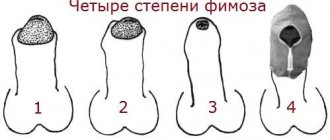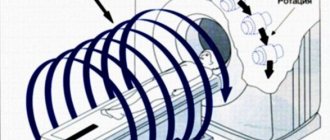Almost every person has experienced severe headaches, back pain, sleep disturbances, dizziness or other ailments that require the attention of a specialist. A person who comes to a medical institution with similar problems is referred to a neurologist or neuropathologist.
Neurologists at the Yusupov Hospital prescribe a special therapeutic complex for treatment, which takes into account the patient’s characteristics. The complex usually consists of drug therapy, physiotherapy, and rehabilitation measures. This can significantly improve the quality of life of a person with a neurological disease.
Who is a neurologist and neuropathologist?
A neurologist is a specialist who graduated from a medical university or institute, after which he completed an internship or primary specialization in neurology. A neurologist is engaged in the diagnosis and treatment of diseases and pathological conditions associated with disruption of the human nervous system. Specializes in diseases of the central and peripheral nervous system. These diseases include neuritis, neuralgia, strokes and micro-strokes, epilepsy, dementia, encephalitis, neoplasms in the brain and spinal cord. If mental disorders do not arise during the development of such diseases, a neurologist is involved in eliminating the disorders. Otherwise, a psychiatrist joins the treatment of the patient.
Neuropathologist is an outdated name for a neurologist. The concept was used in the USSR to designate a specialist who received a higher medical education and qualification in the specialty “Neurology”. The concept of “neurologist” was widely used until the 80s of the twentieth century. Now this term is practically not used. It can rarely be found in specialized literature. The modern nomenclature of medical specialties uses only the concept “neurologist” to designate such a specialist.
How to become a neurologist
Before you start working in the field of neuroscience, you must first acquire the relevant knowledge and skills. Namely:
1. Obtain a higher medical education:
2. Complete residency in Neurology
In addition, the ability to correctly “read” X-ray and tomographic images is necessary.
Skills in manual therapy and osteopathy are also desirable.
The work of this specialist also requires:
- analytical mind;
- good memory;
- skills to communicate with people;
- balance, endurance and patience;
- readiness to provide assistance at any time;
- a mood for “continuous learning”: reading scientific articles, attending conferences, etc.;
- emotional stability;
- Ability to detach emotionally and maintain professionalism.
The difference between a neurologist and a neuropathologist
Having defined the meaning of the concepts “neurologist” and “neuropathologist,” we can conclude that they are actually the same specialist. Only the term “neurologist” is already outdated and has practically gone out of use, while the term “neurologist” is actively used in modern medical practice.
It should be noted that both concepts are still used abroad, but they are somewhat different. A neurologist (neurologist) is engaged in the diagnosis and treatment of diseases of the nervous system, and a neuropathologist (neuropathologist) is a specialist who studies the pathomorphology of the nervous system. The field of activity of a neuropathologist relates to anatomical pathology, neurology and neurosurgery. The specialist studies diseases and diagnoses neurological pathologies through microscopic examination of the patient’s tissues.
Make an appointment
Diagnostic methods
In order to make an accurate diagnosis, it is first necessary to understand the clinical picture of the disease. Therefore, the doctor begins the study with a detailed interview of the patient, and also directs him to undergo various tests. This may include general, biochemical and bacteriological blood tests, a urine test, as well as a blood glucose test, an immunological examination, and a spinal cord puncture.
In addition, modern hardware diagnostic methods provide assistance in finding the cause of the disease. These are ultrasound, x-ray, magnetic resonance and computed tomography, encephalography, neuromyography, electrocardiography.
The more accurate the diagnostic results, the more effective the therapy will be. Diseases of the nervous system are insidious. Missed symptoms or incorrect treatments can lead to death or severe disability.
What diseases does a neurologist treat?
Neurologists at the Yusupov Hospital are leading experts in the field of diseases of the central and peripheral nervous system. They treat patients with pathologies of the central and peripheral nervous system. The diseases manifest themselves as paralysis, loss of temperature, pain, tactile sensitivity, convulsions or mental health disorders. The competence of neurologists includes the following conditions:
- headache;
- epileptic seizures;
- disturbances of consciousness;
- back pain;
- head and spine injuries.
Neurologists at Yusupov Hospital treat the following diseases:
- Parkinson's disease is a demyelinating disease in which movements slow down, muscle tone increases, and tremors appear;
- Alzheimer's disease;
- transient cerebrovascular accidents, hemorrhagic and ischemic stroke;
- sciatica – neuritis of the sciatic nerve, manifested by acute pain in the lumbar and sacral region;
- meningitis - inflammation of the meningeal membrane of the spinal cord;
- myasthenia gravis is a genetic disease in the presence of which muscle weakness and pathological fatigue progress;
- myelitis – inflammation of the spinal cord of infectious origin;
- multiple sclerosis;
- muscular dystrophy – a degenerative disease caused by damage to skeletal muscle fibers;
- ALS is amyotrophic lateral sclerosis or motor neuron disease.
The help of a neurologist is also necessary for neuralgia, neuritis or polyneuropathy, neoplasms of the brain or spinal cord. Patients with the following syndrome need consultation and observation of a neurologist:
- restless legs;
- attention deficit hyperactivity disorder;
- chronic fatigue.
Tuberculous meningitis, tunnel syndrome, extrapyramidal disorders, encephalitis and encephalopathy are diseases that require the help of a neurologist. A neurologist-vegetologist studies the autonomic nervous system, its disorders, causes of diseases and prescribes treatment.
Diseases and complications that require consultation with a neurologist
The help of a neurologist is required for various diseases of the nervous system. In particular, it is necessary to regularly consult a doctor after a stroke, severe traumatic brain injury or spinal injury. Thus, observation is necessary for cystic-glial changes in the brain, high blood pressure, liquor hypertension, unstable intracranial pressure, asthenoneurotic, proboscis and other syndromes.
Other diseases requiring clinical observation by a neurologist:
- consequences of contusions, skull fracture, subarachnoid hemorrhage, subdural hematomas;
- suffered a stroke;
- aneurysms, cysts;
- brain tumors;
- diseases of the peripheral nervous system (sciatica, lumbodynia, neuritis);
- vascular diseases of the spinal cord and brain;
- neuroinfections;
- progressive and hereditary diseases (shaking paralysis, multiple sclerosis, myasthenia gravis, BAK, syringomyelia, myopathy);
- parasitic diseases of the nervous system (neurocysticercosis).
For diseases of the spine and joints, the help of a neurologist is necessary in the event of severe pain, sensory disturbances, weakness and dizziness, a feeling of “current through the body,” decreased obedience of the body and limbs, numbness or temporary paralysis, paresis. Also, this doctor should be involved in the treatment of protrusions and intervertebral hernias in case of damage to the nerve roots.
Signs of neurological diseases
Diseases of the nervous system do not appear immediately, but develop slowly and gradually. They lead to dangerous, severe and irreversible consequences - paralysis, disability, loss of intelligence. As a person ages, this risk only increases.
With peripheral paralysis, muscle contractility is lost, a person cannot move independently, he does not control his own. Paresis is a partial loss of motor activity in the muscles. In both conditions, muscle atrophy develops, muscle volume decreases, tendon reflexes are absent, and muscle tone is lost.
Central paralysis is manifested by increased muscle tone and increased speed of tendon reflexes. When the basal ganglia, which are located in the white matter of the brain, are damaged, the regulation of motor and autonomic function occurs, which affects the motor skills of movements. They slow down, become involuntary, trembling (tremor) appears, and muscle tone changes. If the cerebellum is damaged, coordination of movements is impaired, speech becomes unclear and slow, and the limbs weaken.
Make an appointment
When to contact a neurologist
One of the most common symptoms in which you should consult a neurologist is headache. It can be a consequence of overwork, constant stress, increased anxiety, atherosclerosis, micro-stroke, etc. Almost always, this condition is tolerated “on your feet” and is eliminated with painkillers. Such an approach can lead to negative consequences, since a headache is a signal from the body about the development of pathology. There are many diseases, a symptom of which is headache. Only a qualified neurologist will be able to determine the root cause of the ailment and select adequate treatment.
You should also make an appointment with a neurologist if you have the following symptoms:
- dizziness;
- weakness;
- periodic darkening or blurriness before the eyes;
- sleep disturbance (insomnia, nightmares, sleepwalking);
- muscle pain;
- impaired coordination of movements;
- unsteadiness of gait;
- speech disorder;
- visual impairment;
- loss of consciousness;
- single or repeated convulsive seizure;
- osteochondrosis;
- diseases of the cardiovascular system.
It will be useful to visit a neurologist for prevention for those who are exposed to factors that provoke neurological pathologies:
- frequent stress;
- work that requires increased attention;
- bad habits (smoking, alcohol abuse);
- old age (after 60 years the risk of developing dementia increases);
- hereditary predisposition to neurological diseases.
The patient should consult a neurologist if his motor reaction has slowed down, a feeling of stiffness in the body, trembling in the arms and legs, or convulsive muscle contractions has appeared. Pain in the back, shoulders, arms and legs, decreased sensitivity in some areas of the skin, numbness and tingling also require examination by a neurologist. If memory deteriorates, changes in sense of smell, or taste disturbances, a consultation with a good neurologist is necessary. This doctor will also help patients suffering from unreasonable attacks of fear, panic, rapid heartbeat, chills or a feeling of heat throughout the body.
Recommendations from experts
The nervous system can and should be strengthened. It is not difficult and anyone can do it. Here's what neurologists advise to strengthen the cardiovascular system and prevent neurological diseases:
1. Move! Physical exercise has a beneficial effect on the health of the entire body. Experts especially recommend Pilates classes. They strengthen the back muscles and joints.
2. Swim! Swimming helps relieve back pain and relax the nervous system, and also strengthens the muscle corset.
3. Get enough sleep! Normal functioning of the nervous system is possible only with full sleep (at least 8 hours).
4. Take a walk! Walking in the fresh air is a great way to relieve stress.
5. Form a positive perception of life! The ability to rejoice and find positive aspects in everything allows you to maintain your nerves and overall health.
6. Follow the regime! An optimal daily routine also has a positive effect on the functioning of the nervous system.
7. Do not self-medicate or ignore symptoms! For any neurological manifestations, make an appointment with a doctor. Only a doctor can make the correct diagnosis and protect against serious consequences of the disease.
Appointment with a neurologist
At the appointment, the neurologist asks what complaints the patient has, finds out when the first symptoms of the disease appeared, and whether they are progressing.
Then the neurologist finds out whether the patient’s closest relatives had similar signs. Conducts an external examination to determine whether there is any asymmetry of the face or other parts of the body. To study the functioning of the oculomotor nerve, the patient is asked to follow the movements of the hammer without turning his head. To check reflexes, asks the patient to wrinkle his forehead, say “A” or stick out his tongue. The sensitivity of the face is checked using a needle. To determine muscle tone and muscle strength, the doctor asks the patient to shake his hand and resist when trying to bend the elbow. The deep reflexes of the arms and legs are tested by hitting the tendons with a hammer. Superficial reflexes are examined by irritating the skin of the anterior abdominal wall with a needle. In-depth examination of muscles and joints in a patient with eyes closed. The doctor moves the patient’s finger in different directions and asks him to name exactly in which direction he is doing it. Drawing various figures, numbers or letters on the skin of the patient’s back helps determine the condition of paravertebral pain points and spinal nerves. In order for the doctor to check coordination of movements, the patient assumes the Romberg position. He stands with his feet together, his arms extended forward and his eyes closed. The neurologist asks you to slowly move the index finger of each hand to your nose in turn. During this examination, the person should not stagger to the sides. To assess memory, the doctor may ask the person being tested specific questions about counting or knowledge of dates. Make an appointment
Neurologist - what does he treat in adults and children?
What symptoms require an appointment with a neurologist?
If you are often tormented by causeless anxiety, the inability to stay in stuffy rooms, you have become very nervous, and are prone to fainting, then you need to pay close attention to your health. Such complaints, even from light loads, are a reason to consult a neurologist.
Who is a neurologist
Before going to a medical institution, you need to understand who a neurologist is and what he treats. Both adults and children may need this doctor. A neurologist specializes in diseases of the autonomic system and disorders of the functioning of the nerves of the spinal cord and brain. He is engaged in careful consideration of complaints and subsequent treatment of identified diseases. This specialization can only be obtained by a person who has a diploma from a higher medical institution. Among the diseases that this doctor treats are the following: neuralgia, tumors of the brain or spinal cord, neuritis, strokes, circulatory disorders, convulsions, head injuries, back injuries, sciatica, Alzheimer's disease, migraines, tremor in newborns, impaired concentration, motor disorders, mental disorders and others. Often, to stabilize the condition of such patients, it is necessary to involve a psychiatrist and psychotherapist.
What does a neurologist do?
A neurologist specializes in diagnosing and treating diseases related to the functioning of nerve fibers. It identifies the primary causes of diseases and their impact on a person’s overall well-being. A good doctor quickly and effectively prescribes competent treatment, which can significantly improve the patient’s quality of life. A neurologist who treats chronic fatigue is the most sought-after doctor in modern medicine. Neurology is a science that studies the connection between the nervous system and human well-being. Neuropathology is the object of research and study of all neuroneurologists. Absolutely all diseases associated with impaired functioning of nerve fibers can be addressed to this doctor. Neurosurgery is a branch of surgery that deals with the surgical treatment of such diseases.
What diseases does a neurologist and neuropathologist treat?
Is there a difference between these specialties? In reality, a neurologist and neuropathologist treats diseases of the nervous system. It’s just that the term “neurologist” was used in the 80s of the last century. In domestic medicine, these concepts are identical. But in foreign practice, a neuropathologist specializes in the pathomorphology of the nervous system, and a neurologist deals with the identification and treatment of diseases of a nervous nature.
What does a neurologist look for?
A neurologist looks at the functioning of the nervous system. Performs an initial examination, checks unconditioned reflexes. The examination also includes a visual examination and palpation. The main task is to identify deviations in a person’s sensory or motor activity. If there are visible violations, he prescribes additional examination or treatment.
What tests does a neurologist prescribe?
When assessing the patient's condition and to facilitate diagnosis of the disease, the neurologist prescribes tests. To accurately determine the disease, a vision or hearing test may be necessary. A specialist may prescribe the following types of tests:
- general blood analysis;
- Doppler ultrasound of the neck, head;
- electroencephalography;
- Brain MRI;
- electroneuromyography.
What complaints are addressed to a neurologist?
This doctor establishes a cause-and-effect relationship between the nervous system and the pathological condition and prescribes treatment. Sometimes you just need to adjust a person’s lifestyle to achieve the desired effect. An abundance of stressful everyday situations and poor environmental conditions are important factors in the manifestation of neurological diseases. The most common complaints that people come to a neurologist with are:
- fast fatiguability;
- frequent dizziness;
- poor concentration;
- constant bad mood;
- behavioral disorders;
- mental disorders;
- sleep quality disorders;
- constant feeling of fear and anxiety.
What symptoms do you see a neurologist for?
The most important thing is to detect early symptoms, this will prevent the development of serious diseases. A combination of negative factors affecting a person, if not promptly contacting a specialist, can aggravate the situation. A neurologist is consulted with symptoms such as:
- regular headaches;
- soreness in the chest on the left;
- fluctuations in blood pressure;
- increased nervousness;
- migraine;
- disturbances in the functioning of the sweat glands.
What problems do people consult a neurologist for?
The reasons for visiting a neurologist are a deterioration in a person’s quality of life. Chronic fatigue and overexertion in everyday life causes disorders of the cardiovascular system. And this brings with it hypotension (low blood pressure), hypertension (high blood pressure). It is fraught with the development of various metabolic disorders. The most important thing is to consult a doctor in time for help. The specialist will prescribe professional therapy and medication.
What does a neurologist treat in children?
The difference between a pediatric neurologist and an adult is that an adult doctor approaches a child with different treatment methods. Parents of children come to us with the following problems: impaired concentration, inability to concentrate, poor performance at school. Any deviations or changes in behavior are a reason to visit a pediatric specialist. This is the first obligatory doctor who examines a newborn baby. It eliminates the risk of developing postpartum pathologies. A pediatric neurologist will help identify early problems in a child’s development and prevent their occurrence.
Take care of your health, do not self-medicate, but consult a specialist! Take care of yourself and your loved ones!
Additional neurological studies
After clarifying complaints, anamnesis of illness and life, general and neurological examination, doctors at the neurology clinic of the Yusupov Hospital draw up a comprehensive examination scheme, which includes:
- computed tomography - reveals areas of hemorrhage, malformations of arteries or veins, allows you to see changes in tissue, their softening or swelling in case of traumatic brain injury or cerebral infarction;
- Magnetic resonance imaging is a modern diagnostic method that provides more detailed information due to the greater resolution of the device;
- angiography - a contrast radiographic study that reveals changes in the blood vessels of the brain;
- multislice tomography is a non-invasive method for visualizing cerebral vessels;
- Ultrasound examination - allows you to obtain a detailed image of the large vessels of the neck.
Lumbar puncture and cerebrospinal fluid analysis are performed for meningitis, hemorrhages, and neoplasms of the meninges.
X-ray examination uses contrast. On X-rays, a radiologist can see intervertebral disc herniations, proliferation of vertebral bodies, and tumor processes. The study gives a clear picture of the state of the subarachnoid space of the spinal cord. Electroencephalography allows you to record the biopotentials of the brain. Using electroneuromyography, the condition of peripheral nerves, muscles, the localization of the pathological process and the degree of damage to nerve fibers are determined. In neurology, diagnostic methods such as biopsy of muscles and nerve tissue, genetic studies, clinical and biochemical blood tests are used.










